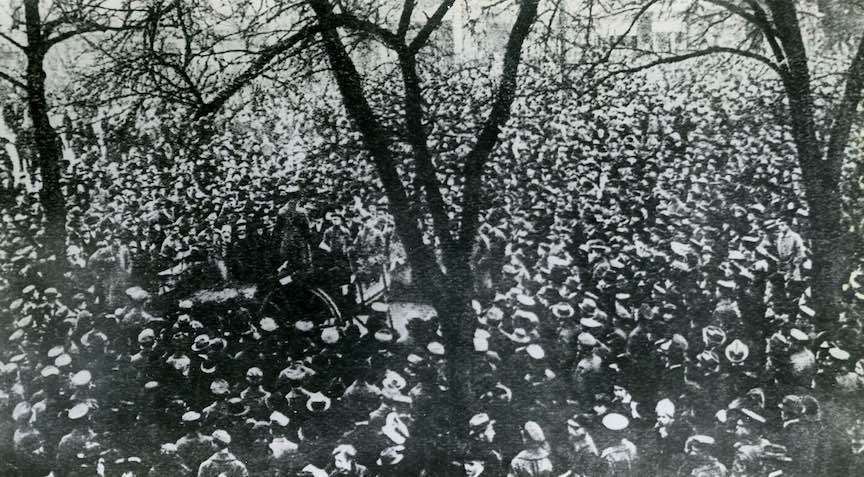1918 Polish Uprising

Posen 1918
The Polish Uprising began on December 27, 1918. By mid-January, the Polish forces gained control of most of the country from the German. Under the treaty of Versailles, Poland was recognized as an independent country.
Poland had ceased to exist as an independent nation after the Third Partition of Poland in 1795. There had been various rebellions over the years, but none succeeded, and Poland had remained part of both Germany and the Austria Hungarian Empire. With the abdication of Wilhelm II in Germany, the Poles began to plan a rebellion to seek their Independence. On December 27, 1918, Ignacy Paderewski gave a patriotic speech in Posen. That sparked the beginning of the uprising. The uprising was led by members of the Polish Military Organization, which founded the Citizens Guard, later renamed into the People Guard, most of the members of which were veterans of World War II.
The Poles faced minimum resistance from a German Army that was disintegrating. The German government was preoccupied with putting down a revolution in Germany. By the middle of January, most of Poland was in the hands of the new Polish Army. Fighting mostly came to an end with the truce renewal between Germany and the Allies on February 16, 1919. Skirmishes continued until the signing of the Versaille Treaty. Under the treaty, Poland was recognized as an independent nation and gain lands, including the Polish corridor between Germany and East Prussia.
.
 >
>